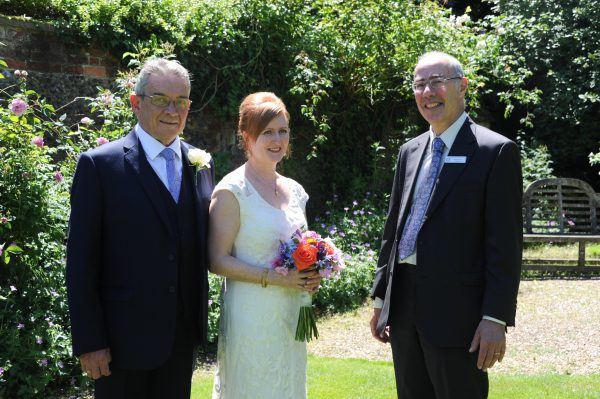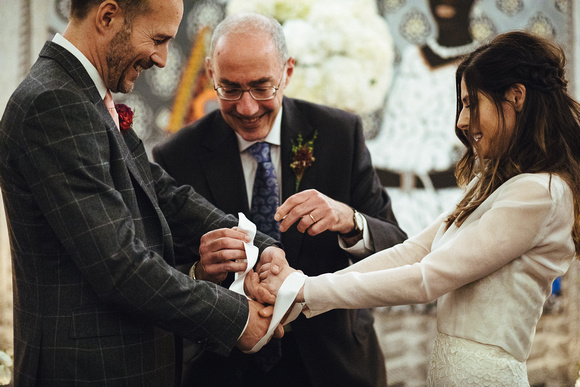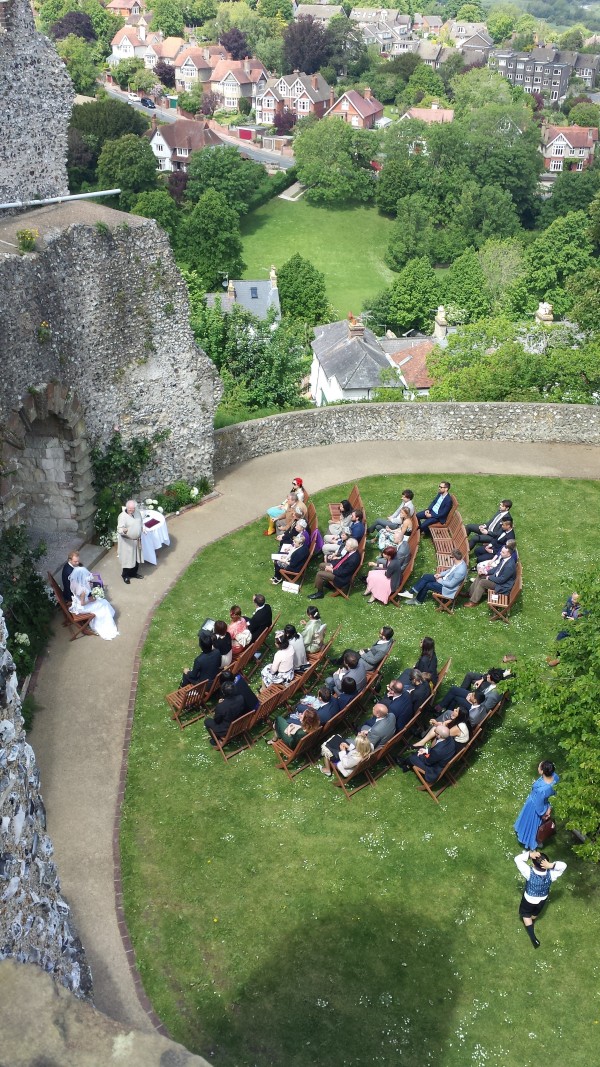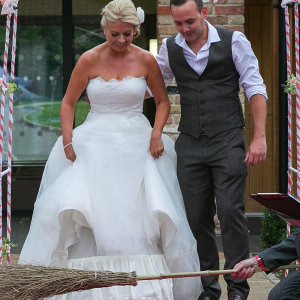
by Michael | Jul 21, 2020 | Blog
When I say “when?”, I mean the time of day or season. This is not a marriage guidance column. Let’s get that straight from the outset.
And we’re not talking about religious weddings that won’t take place on a Sunday, if Christian, or a Saturday, if Jewish. And so on.
Register Office
To marry at a Register Office, you need to make an appointment and go down (with two witnesses) on a working day.
By arrangement, the registrars will come out to certain venues, provided certain criteria are met and extra fees are paid. This will often include weekends.
Such weddings have to take place between 8 a.m. and 6 p.m.
At the time of writing, however, registrars may not be coming out.
Alternative Ceremonies
You can hold any other ceremony when you want (within reason). Obviously, you have to respect opening times and conditions of any venue you use. You might book a hotel, castle or stone circle.
Avoid High Season
Public holidays are an expensive time to arrange your event. Staff have to be paid extra. You also have to consider that certain times may be difficult for your guests.
Theoretically, you could marry on Christmas Day, but remember that guests might want to spend such a day with their family. Moreover, public transport would be minimal, at best, and costs would escalate, as staff would be paid overtime rates or be difficult to source.
Bear in mind that summers are always popular with people booking holidays, so get your invitations in quick! Summers don’t guarantee good weather, but the chances are reasonable that your big day will be sunny. Summer is therefore a popular time to book weddings, and prices tend to reflect that!
You can sometimes wangle a reduction, if you hold the event in the morning or afternoon.
Another expensive date is Valentine’s Day.
Finally, Fridays and, especially, Saturdays are likely to be most expensive (most popular, again). Remember, though, that if you book another, cheaper day, and it’s a destination wedding, it culd force people to take a long time off work.
Summing up
You may need to do your due diligence, but there is quite a lot of flexibility, when it comes to choosing when you marry.
Take the above remarks into consideration. But, most important, remember that it is your big day, so your wishes are paramount.

by Michael | Jul 15, 2019 | Blog
People often ask me if they can include something humorous in a ceremony. “What will people think?” they ask.
Of course,
the answer depends on what expectations and intentions they may have. What
effect are they looking for?
Initially, my response is “yes”. “Certainly”, if it’s a wedding and “with care”, if it’s a funeral.
The traditional response
How traditional do you want your ceremony to be? If that’s your chosen path, then don’t expect much hilarity from the full Church service.
I officiated at one (secular but traditional) high society wedding, where the family were very keen that all appearances were correct and that guests would have no grounds to find fault with any part of the service.
Actually, I wondered whether it would mean more to the guests to witness a moving, sincere ceremony, rather than a fabulous spectacle. And if it entertained a bit, thanks to a touch of humour, all the better!
An alternative approach
At my “usual” weddings, however, (often, part-religious or secular), there is scope for personalising the ceremony. Normally, I advocate including some “serious” elements but also a few lighter moments. The ring blessing and vows, say, could be earnest – but the vows might include some humorous promises (based on personal idiosyncrasies of one of the couple).
I like to put in the couple’s story, where possible. This frequently offers scope for humour.
Humour in funerals
As I have implied, humour is more likely to be expected – and accepted – at a celebratory event.
However, although funerals should offer the opportunity to grieve, I believe they should also be a celebration of life and therefore should not exclude well-placed and tasteful humour.
Ad-libbing requires great care. A funeral will almost never be the place to be controversial or crude.
The best place for humour is in the eulogy or personal tribute. If the deceased had a special saying, favourite joke or some unique characteristic, reference to that will be appreciated by most who knew them. I loved the lady, who would go ballistic whenever Philip Schofield appeared on TV. When I referred to this, everybody – especially, the family – recognised, appreciated and enjoyed it!
If that’s appropriate for the deceased, why not have it?!
There’s nothing – in theory – to stop you having a whale of a time at a funeral. Sometimes, everyone is encouraged to wear a particular football shirt, say, to mark the deceased’s passion. The tone of such a service is likely to be quite light!
I hope I’ve made it clear that the tone you desire for weddings or funerals is ultimately down to you. Discuss it with your celebrant, and you can have the ceremony that suits and keeps a smile on everybody’s face.
Photo: www.lyndseygoddard.com

by Michael | Sep 13, 2018 | Blog
So many people assume that a wedding can’t be creative. It’s either got to be a full religious service or a register office ceremony. Or so they think.
Provided you ensure the legal formalities are complied with, you can have a creative ceremony.
What do I mean by “creative”? That’s a huge question.
For example, you need to consider whether you plan to hold the ceremony indoors or out. How conventional do you want it? What about a wacky venue? On the seashore, at an aquarium, in a hot-air balloon. You get the picture …
Wide-ranging
To speak fairly generally, you can hold a fairly traditional ceremony that, to all intents and purposes, looks like the wedding my grandparents would have expected (except that it might not be held in a religious edifice).
You may opt for a pagan ceremony or some pagan elements. A handfasting will invoke nature blessings and can be most exciting.
Then there are various gradations of religiosity. You could have a few prayers and blessings, some originating from other liturgies or cultures, and of course it might be a humanist-type wedding, with no religious words at all.
A Civil Celebrant-led wedding can cover any degree of religiousness, but your choices don’t end there. There’s the tone and language to be used (by which I mean formal or informal), there’s the music to be decided, what readings or poems will be used, and, indeed, whether you want friends or family participating.
Perhaps the element that differentiates weddings the most is the choice of ritual. That could be another blog in itself! However, maybe this will give you an idea what I am driving at.
Depending on personal beliefs and preferences, you can include rituals from your own or other religions. An East European ritual, for example, involves the couple being presented (usually by a mother) with a loaf of bread. They both bite into it simultaneously, and the person who gets the greater piece will supposedly become the head of the household!

One of my favourite rituals normally comes at the end of the ceremony, is pagan, and can bring a smile to everyone’s face. (But it has slave origins, so not everyone will go for it.) It’s called “jumping the broom” because the couple have to jump together over a besom. This symbolises sweeping out the old and bringing in the new, as they start their life together.
For further suggestions, feel free to contact me!




